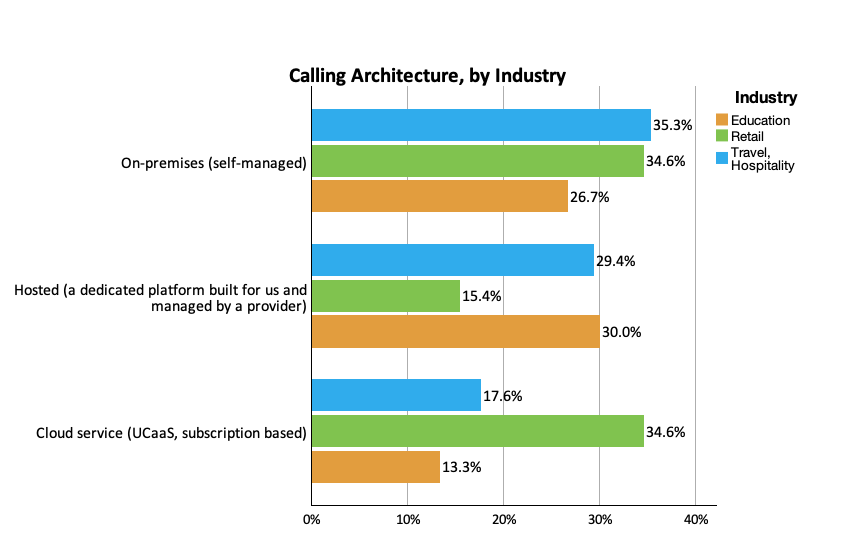On-prem, private hosted, and hybrid Unified Communications (UC) platforms offer unique advantages for education, hospitality, and retail organizations. Among participating companies in those industries in Metrigy’s Workplace Collaboration: 2023-24 global research study, almost 32% use on-premises UC platforms, while 24.7% use a private cloud solution.
Looking at each segment individually, 64.7% of those in the hospitality industry are on-premises or private-hosted, compared to 56.7% of education and 50% of retail. Across geographies, North America has the highest adoption of on-premises platforms, followed by Australia and the EU. Just 13% of those who are currently on-premises plan to move to Unified Communications-as-a-Service (UCaaS) in 2023.
These high adoption rates of on-premises and private hosted UC platforms, coupled with the relatively small percentage of those planning to move to UCaaS, highlight significant benefits for the on-premises, private-hosted, and hybrid models for education, hospitality, and retail industries.
4 Reasons Why Education, Hospitality, and Retail Stick with On-Prem and Hybrid UC
1. Reliability
The primary reason cited across all three industries for staying with on-premises and private-hosted solutions is their reliability. In the retail space, with large numbers of distributed locations, stores must be able to operate even if there is a network outage. Individual locations must be able to place and receive calls and ensure that systems such as alarms can always function. Hospitality operates under a similar model. A hotel, for example, can’t tolerate downtime for its in-room communications or be unreachable by those looking to make a reservation if there is a network outage or a UCaaS outage. Educational organizations, too, must ensure reliability, especially for higher education institutions spread out across campuses, and support communications modalities, including emergency calling systems.
Continue reading at mitel.com.





